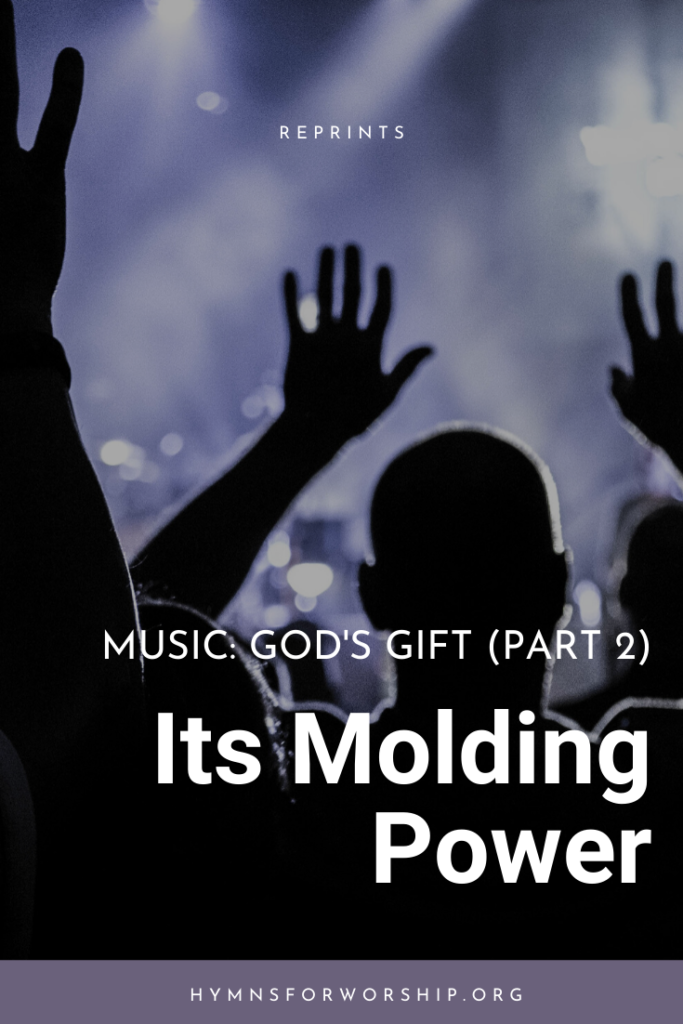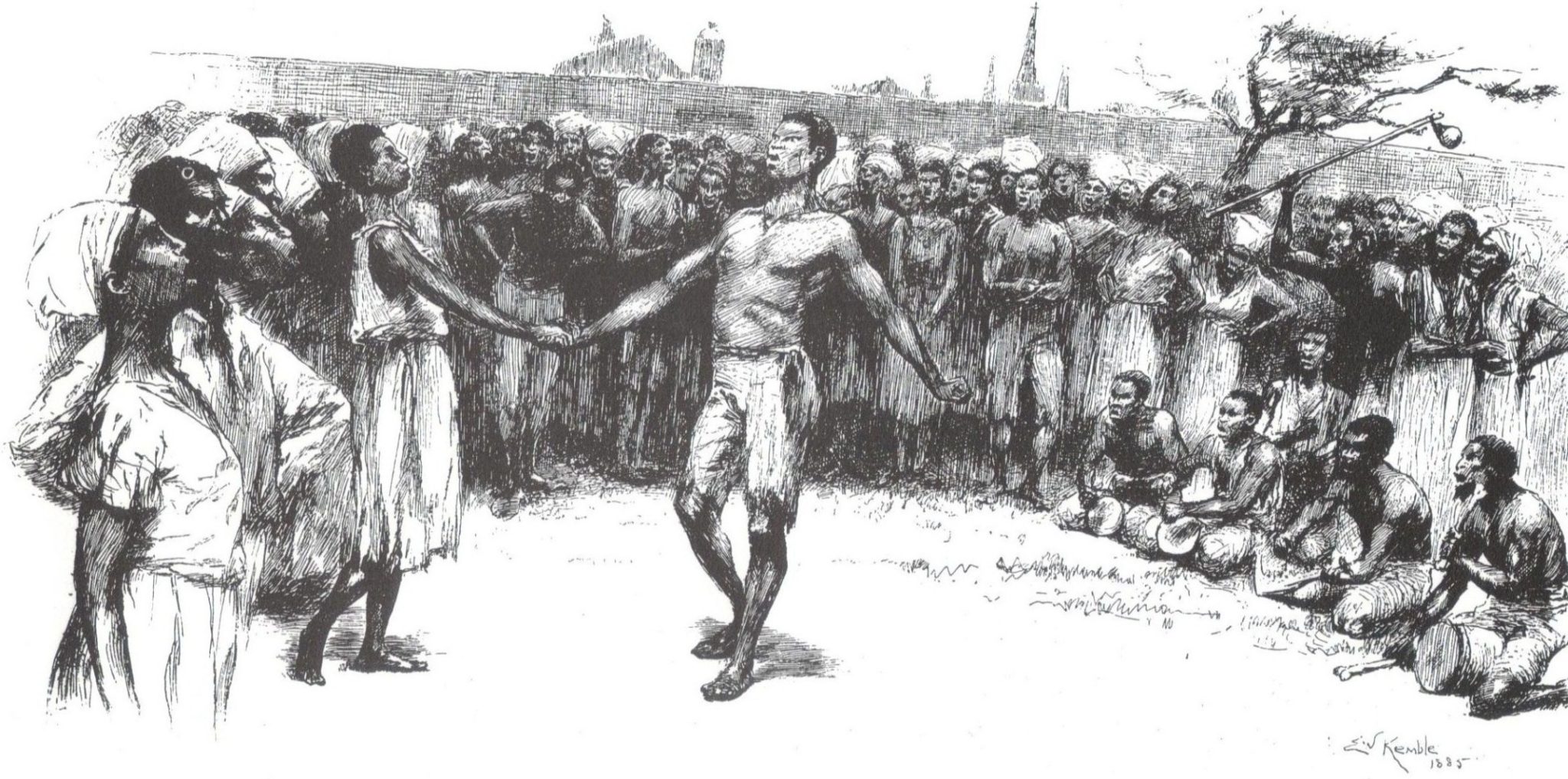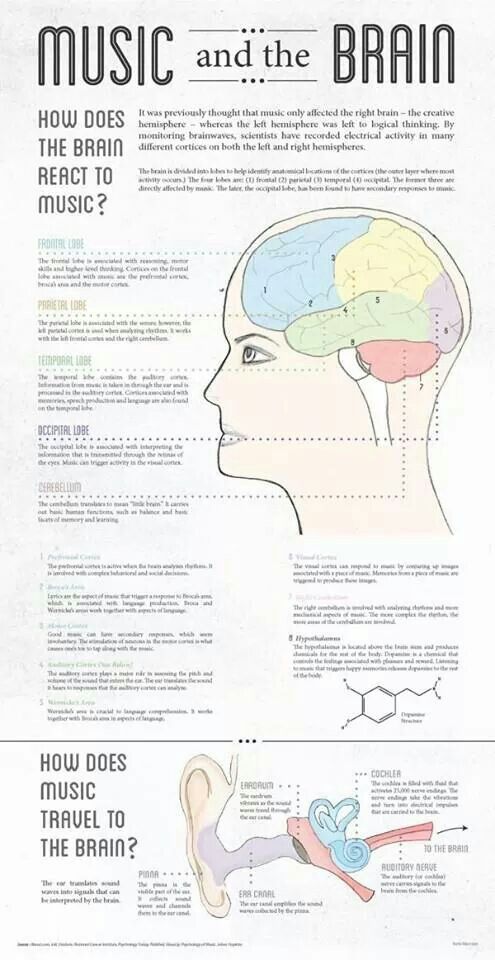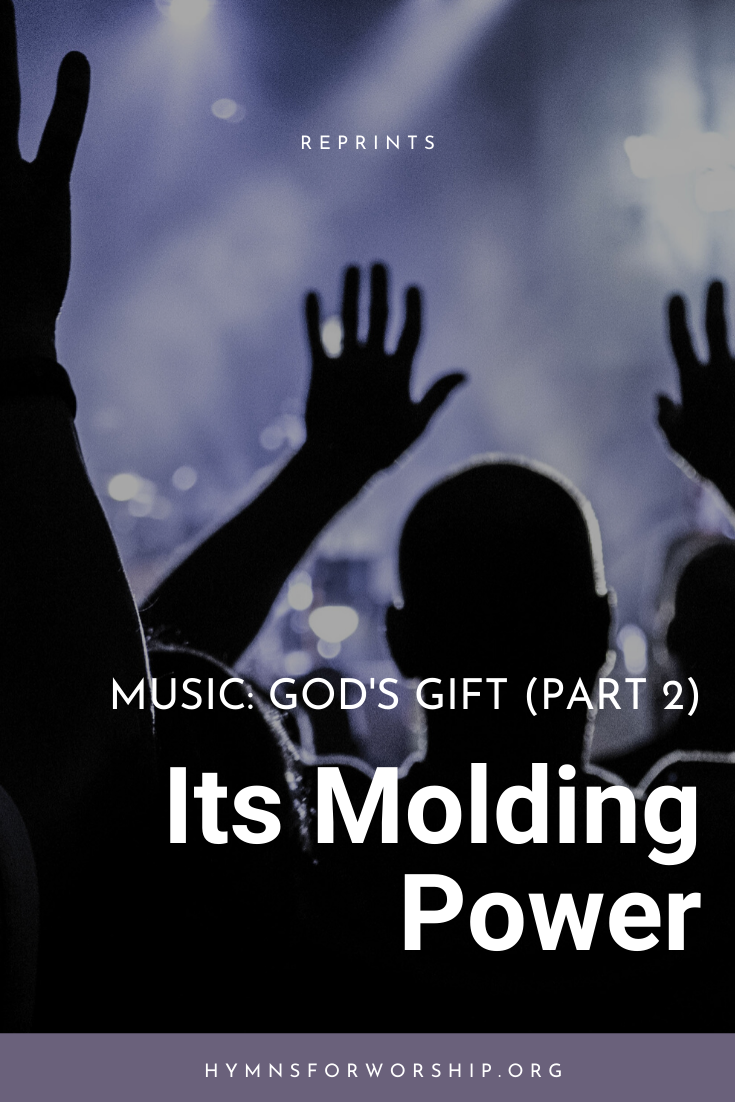The firm but gentle molding power of music is described by Lord Byron in the following lines:

“It softened men of iron mold,
It gave them virtues not their own.
No ear so dull, soul so cold
That felt not, fire not to the tune
Till David’s lyre grew mightier than his throne.”
Plato, in the Second Book of Laws, found a direct relation between morality and proper music. Plutarch, the great Greek biographer of the first century after Christ, discovered that “the right molding of ingenious manners and civil lies in a well-grounded musical education.”

In a reformatory in the Midwest of America which houses 6,000 inmates, it was learned that not one had ever had musical instruction. No active professional musician has ever been committed to Sing Sing Prison. I have heard teachers from various institutions remark that they never have difficulty with students who make a serious study of music. Parents would do well to note this fact. Music of the proper kind always refines, elevates, and ennobles the character.
In the first of this series of articles on Music — God’s Gift, it has already been stated that music is both a science and an art, and as such is a direct gift from God. However, Satan, the one-time choir director of heaven, realizes more than any human being can ever begin to imagine what power lies within this means of expression. He has in a cunning, subtle way managed to distort what God intended to be used to uplift the soul of man, and instead, by perversion, it demoralizes and degrades.
Is it sheer coincidence that at the time Christianity was being introduced to Africa and the heathen was receiving the gospel, the music of Africa should reach across the sea and influence the music of the white man? Satan could not bear to be the loser, and in revenge, he made sure that for the souls to be gained an equal number would be lost through the influence of heathen rhythm.
Coinciding with David Livingstone’s entry into Africa, we find the jazz element developing in the music of the white man in America, largely because of the influence of Negro slaves who had carried with them their native off-beat rhythms. This is not to say that the Negro was not sincere in the spirituals that he sang; to the Negro his song carried the utmost sincerity and he poured all his faith and trust into his song, and found courage in his simple expression of hope for a better life to come, for his trials were many. The white man, however, uses the Negro spiritual mainly because of its rhythm and as such it does nothing to uplift the soul of either singer or listener.

In the birth of jazz and all off-beat music, it can safely be stated that such musical expression shows retrogression, for the only difference between the witch-doctor beating out his heathen rhythms on the tom-tom, and the so-called civilized dance band leader is that the one wears a grass skirt and feathers, while the latter is dressed in tuxedo suit and swings a baton.
Some remarkable experiments have been made to determine the power of music and its influence on the human emotions. Two young people were placed together in a room where they could be observed without their being aware of this. The teenage boy and girl had never met before; it was noticed that they were cool and formal towards each other while classical music was relayed into the room. Gradually the music became more marked in distinct off-beat rhythms; the couple became less formal towards each other. The music became more and more sensuous and the couple who a few minutes earlier had been reserved and formal, began necking and petting; then, as the music was returned to classical again, they again became formal and reserved.
Music of the proper kind always refines, elevates, and ennobles the character.Click To TweetWhat then are the attributes of music that can produce such profound effects? First of all, music appeals to the senses. It affects the hearing as the flavor of food affects taste. Flavour, however, does not make food nourishing, nor does a really pleasing sound in music makes it profitable. Music that appeals merely to the senses is, indeed, a poor type of music. Ear-pleasing music may appeal tremendously to the indolent and unintelligent who are satisfied with the pleasures of the senses and want nothing above or beyond sensuous enjoyment. But mere sensuous enjoyment may degenerate into sensualizing, so that music that merely pleases the senses may easily slip one stage lower and be degenerating, sensual, and crude.
Music must appeal to the intellect and challenge the imagination. Good music requires thought and study to appreciate its values.

As a further ingredient, we add to the intellectual the emotional. Anger and fear is indicated by high, shrieking sounds; mystery or gloom by low tones; calmness by smooth flowing sounds; agitation by irregular, spasmodic sounds. Music, then, is capable of infinite emotions, some of them just as wrong and degrading as emotions expressed in spoken words may be wrong, for music is a language. The sensuous, the intellectual and the emotional combined makes music an art with power to lift us into a high realm of thinking and living. Music of this kind is akin to religion, for religion is also something beyond the mere realm of the senses.
To confess a lack of appreciation of music that is above the sensuous is to confess a lack of appreciation of the finer things of the mind and spirit. Let us judge our appreciation of music by whether it moves our hearts or our feet!
Under the sensuous power of much so-called religious music, people are carried away into a completely ecstatic or hypnotic condition, very similar to the condition in the orgies of the pagan Greek and Syrian festivals. Any music that relies for its appeal on purely sensuous or emotional chords, may be looked upon with reservation for does not the Lord say, “Come now, and let us reason together.” Man who is endowed with intellect can measure merit only where he is ruled by principle. So a great piece of music is one in which there is not only sensuous beauty and emotional eloquence but an observance of the laws of time.
The following article by Wilhelmina Dunbar is taken from the April 15, 1969 issue of Trans-Africa Division Outlook. The original can be found at the Adventist Digital Library website.
Photographs in this post are not included in the original article.
Like this article? Share it!

